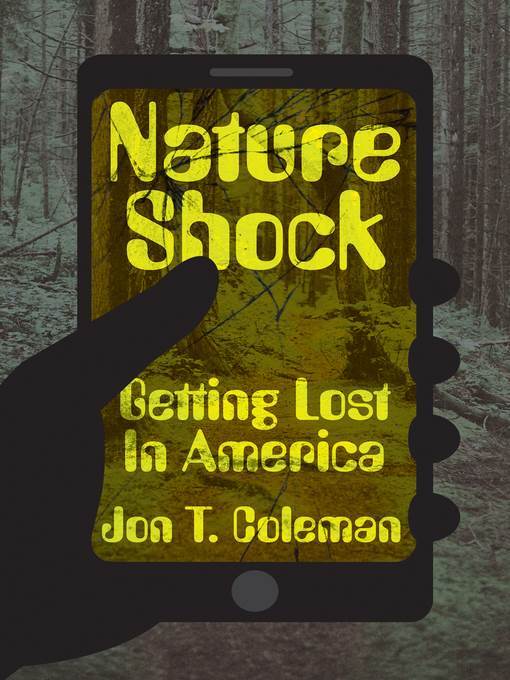
Nature Shock
Getting Lost in America
کتاب های مرتبط
- اطلاعات
- نقد و بررسی
- دیدگاه کاربران
نقد و بررسی

June 22, 2020
In this contemplative and erudite study, University of Notre Dame professor Coleman (Vicious: Wolves and Men in America) discusses how different groups of people have related to, and lost their way in, the United States’ vast tracts of wilderness. He begins by tracing Spanish conquistador Hernando de Soto’s trek through what is now the American South in the 16th century, continually attacking indigenous people while getting progressively more lost, before finally dying of fever. Coleman then moves into the Pilgrim era, documenting the English settlers’ attempts to carve out a society while likewise getting constantly lost in the woods, and usually rescued by the Algonquians. One of the most engaging sections focuses on Maroons—escaped slaves who, while hiding from their captors, created fully functioning communities in North Carolina and Virginia swampland. Moving into the 20th century, Coleman discusses author Edward Abbey’s work as a park ranger rescuing lost hikers at Arches National Monument in Moab, Utah, while, ironically, urging readers to “get lost, sunburnt, stranded, drowned, eaten by bears, buried under avalanches.” Today, he suggests, Americans would do well to remember, for all their sophisticated digital navigational devices, the helplessness that people once felt in the woods. Coleman’s work will fascinate readers with its look at the place of wilderness in American history.

June 15, 2020
A professor of history at Notre Dame examines the phenomenon of getting lost in the face of technologies meant to keep us on the path. Coleman opens with an only-in-America vignette, describing a company that places clients in remote places with the aim of their "finding their true selves in bespoke isolation." Getting lost in the woods in search of self-discovery has possibilities both positive and negative: One can become like Kerouac in The Dharma Bums or Piggy in Lord of the Flies. As the author discusses, there's getting lost, and then there's getting lost, as with Hernando de Soto and Alvar Nu�ez Cabeza de Vaca, the Spanish conquistadors, or the French explorer Samuel de Champlain, who marveled at the fact that a Huron guide assigned to him "knew how to find again the place from which he started so well that it was something very remarkable." Coleman sometimes ventures into arid academic territory, and his excurses into the howling wilderness of the Puritans and pioneers have been done better by other scholars, such as Perry Miller and Henry Nash Smith. Still, he makes a number of salient points. For example, early advocates of camping that was recreational rather than required willingly put themselves in harm's way even as the development of managed campgrounds reduced that danger while replacing it with a "feeling of detachment [that] was an amenity, and clients and managers pushed the limits of safety to conjure sensations of being out-there, on the edge of the known world....Visitors accepted risks because they expected nature to blow their minds--in a healthy, sublime way." The payoff for moderns? Perhaps respite from the flood of information that washes over us, to say nothing of growing a stronger hippocampus, which is never a bad idea. Worth a look for fans of Thoreau, Solnit, and other proponents of aimless wandering.
COPYRIGHT(2020) Kirkus Reviews, ALL RIGHTS RESERVED.

























دیدگاه کاربران